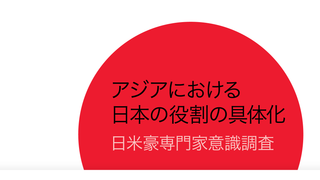Introduction
In December 2022, the Government of Japan released the National Security Strategy (NSS), the National Defense Strategy (NDS), and the Defense Build-up Program (DBP). These three documents included plans to increase defence spending to nearly two per cent of GDP (1.6 per cent, excluding coast guard and other indirect defence-related expenditures) by 2027, develop and deploy counterstrike capabilities, and strengthen command and control arrangements for the Japan Self-Defense Forces (JSDF). Central to Japan’s new strategy is closer jointness and interoperability with the United States, building on Prime Minister Abe Shinzo’s 2015 Peace and Security legislation and the reinterpretation of Japan’s constitution to allow collective self-defence operations with US forces and the militaries of other nations under limited circumstances. Among those other nations, none is more important to Japan’s strategy than Australia, which the Japanese Government designated in 2022 as Japan’s most important security partner in the Indo-Pacific following the completion of the Japan-Australia Reciprocal Access Agreement.1 From the US perspective, no two countries will be more important in responding to maritime contingencies in the Indo-Pacific than Japan and Australia. From the US and Australian perspectives, the successful and timely implementation of Japan’s new defence strategy documents will be essential to achieving shared strategic objectives in the region.
In order to assess progress and priorities in Japan’s new strategy, the United States Studies Centre at the University of Sydney (USSC) and the Center for Strategic and International Studies (CSIS) in Washington, DC collaborated to design a survey of national security experts in Japan, the United States and Australia, executed by CSIS. The survey covered a range of issues including threat assessments; fiscal challenges; counterstrike capabilities; cyber capabilities; command and control arrangements; extended deterrence; defence industrial base and technology development; intelligence capabilities and sharing; and US-China relations.
The survey reflects the strong stake that allies and partners like the United States and Australia have in the outcomes of Japan’s implementation efforts, including the balance of costs and benefits of different policy choices available to policymakers in Tokyo.
The survey canvassed the views of 51 leading Australian experts, 65 leading Japanese experts and 59 leading US experts from 22 January to 8 February 2024. All participants either have substantial experience serving in the government or are experts from academia or think tanks.
CSIS has used expert surveys like this in past to gauge thought leaders’ views on critical issues in the region, ranging from defence to democracy.2 In contrast to large-scale public opinion surveys, there is no quantifiable margin of error in the results. This survey also differed from “elite surveys” conducted by organisations like Gallup or the Chicago Council on Foreign Affairs because the subjects were chosen only from one specific field of expertise. Every effort was made to capture a wide array of views from national security experts from multiple administrations, political parties or institutions, but the selection remained subjective to some extent and there is no guarantee that those who responded did so across all the perspectives solicited (parliamentary and congressional members and staff, active duty military, and currently serving officials were not surveyed). Nevertheless, the response rate was high for this survey, at 30.1 per cent. Moreover, the elite nature of the survey respondents of this survey allowed more specific questions to be asked about operational issues and policy or legal questions than would otherwise be possible in conventional public polling. The results demonstrate how experts following Indo-Pacific security and Japan’s defence policies assess the issues and, as such, provide an important and actionable snapshot as Japan embarks on the second year of implementation.
Overall, the survey found broad strategic alignment between Tokyo, Washington and Canberra on the objectives and intent of Japan’s NSS, much of which resonate with the US 2021 National Security Strategy (NSS), and Australia’s 2023 Defence Strategic Review (DSR). Experts from all three countries assessed the greatest near-term threats to Japan in the same manner; supported Japan’s pursuit of counterstrike capabilities; and encouraged the establishment of joint and combined command and control arrangements between Japan and the United States.
However, the results also highlighted a discrepancy between American experts’ preference for integration between US and Japanese counterstrike capabilities, and Japanese experts’ desire to retain greater autonomy with respect to the targeting and information-gathering capabilities required to give counterstrike weapons their full effect. Japanese experts were also much more likely than their American counterparts to rank the indigenisation of defence procurement, innovation, and production as the primary pathway for delivering Japan’s deterrence capabilities. Interestingly, Australian elites shared a similar view to their Japanese experts.
The survey also highlighted the importance afforded by American and Australian experts to Japan’s efforts to address weaknesses in its intelligence-gathering, information-sharing and cybersecurity practices. American and Australian experts approached these issues from the high standards of the Five Eyes intelligence sharing framework, but also with the expectation that the JSDF should become more interoperable with the Australian Defence Forces and the US military. A majority of American and Australian experts said they were less willing to include Japan in AUKUS Pillar II defence technology development or Five Eyes intelligence-sharing without Japan making substantial progress on strengthening cybersecurity and implementing revised security clearance procedures.
Importantly, despite Japan’s plan to significantly increase defence spending to two per cent of GDP by 2027 (from about 0.96 per cent in 2022), few thought the increase would be sufficient to address the growing security challenges from China. At the same time, Japanese respondents were less optimistic than American and Australian respondents that Japan’s defence budget would continue to grow at a rate above inflation after 2027, particularly given inflation, unfavourable exchange rates and other downward pressures on future defence budgets. The uncertainty over the sustainability of defence funding puts into sharpened focus the balance for Japan between the development of indigenous capabilities through the domestic defence industrial base against the speed of capability deployment through foreign military sales with the United States.
While these are ultimately strategy and policy decisions for the Government of Japan to resolve, the survey reflects the strong stake that allies and partners like the United States and Australia have in the outcomes of Japan’s implementation efforts, including the balance of costs and benefits of different policy choices available to policymakers in Tokyo.
Key findings
1. Japanese, American and Australian experts are closely aligned in assessing the top national security threats to Japan.
- Experts from all three countries identified the same top three near-term threats to Japan: 1) Chinese grey-zone coercion and military activities in the East China Sea (75-86 per cent), 2) North Korea’s growing nuclear, missile and submarine capabilities (71-78 per cent), 3) Chinese military use of force against Taiwan (63-78 per cent).
- Japanese elites are more concerned about Chinese military use of force against Taiwan than those from the other countries — 78 per cent of Japanese, 63 per cent of American and 67 per cent of Australian respondents surveyed.
- These assessments are similar to those of the Japanese, Australian and American public in USSC surveys in 2022 and 2023.3
2. Experts in all three countries strongly support Japan’s development of counterstrike capabilities, but Japanese and US experts disagree about integrating targeting and striking capabilities.
- A vast majority of surveyed experts from all three countries think Japan needs these capabilities to hit enemy ships (75-88 per cent) and/or enemy staging areas (75-88 per cent), though few thought these capabilities should target cities or high-value official targets (12-24 per cent).
- However, there is a significant gap between American and Japanese experts regarding questions of sovereignty in Japan’s strike chain. While 80 per cent of US experts think Japan should closely integrate with US targeting and information-gathering capabilities to deliver strike effects; only 20 per cent of Japanese elites think the same, preferring autonomous capabilities for targeting, surveillance, and queuing.
3. Experts from all three countries recognise the need for Japan to strengthen its cyber security measures and to develop “active cyber defence” capabilities, but Japanese respondents have a more limited view than their Australian and American counterparts of the appropriate role of cyber operations in responding to an attack on Japan.
- A majority of Australian (57 per cent) and US (61 per cent) experts think Japan should use its cyber capabilities in response to any form of attack on Japan, even if it does not involve cyber tools; only 32 per cent of Japanese elites think the same. A majority of Japanese surveyed elites think that Japan should use cyber tools only in response to a cyberattack on government networks or critical infrastructure, a far larger percentage than in Australia and the United States.
- A strong majority of surveyed elites in all three countries think private companies should be legally required to report cyber incidents to the central government. However, Australian (90 per cent) and American experts (86 per cent) are keener than elites in Japan (75 per cent), where the constitutional bar for requiring such information sharing is much higher.
4. Elites across all three nations expect that Japan will continue to face fiscal constraints despite the significant increase in its defence budget.
- A majority of experts in all three countries (54-63 per cent) think the proposed increase of Japan’s defence budget to nearly two per cent of GDP by 2027 is not enough to meet the regional security challenges.
- A minority of elites in all three countries think Japan will continue to increase its defence expenditure above the level of inflation (27 per cent of Australian elites, 31 per cent of American elites and just 15 per cent of Japanese surveyed thought leaders).
5. Japanese and Americans agree on the need to strengthen command and control architecture, but not how.
- A majority of Japanese (68 per cent) and American (61 per cent) experts think the United States should establish a new permanent joint command in Japan to work with Japan’s new Joint Operational Command. In contrast, less than half of Australian experts were in favour of it (41 per cent).
- More than half of Japanese (54 per cent) and American (66 per cent) experts agree that there should be a joint and combined command arrangement between Japan and the United States.
6. Experts from all three countries favoured broad relaxation of arms export restrictions though Japanese experts tended to emphasise indigenisation of defence production as very important “even if cost, timeliness or quality are at risk” while US experts disagreed.
- US experts think Japan is overemphasising the indigenisation of defence production, with a majority of the American elites (61 per cent) arguing that indigenisation of the defence industrial base is not important in the context of delivering capabilities quickly and cost-effectively, while the majority of the Japanese elites (65 per cent) think that this is important even if cost, timeliness or quality are at risk.
- On this issue, Australian elites are more sympathetic to Japanese views than to American elites: 61 per cent of the Australian surveyed experts think that Japan’s indigenisation of defence equipment production is important.
- At the same time, a large majority of elites in Japan (91 per cent), Australia (90 per cent), and the United States (93 per cent) said that Japan should focus on procuring defence capabilities quickly regardless of their origin.
- A majority of experts from all three countries favoured Japan implementing broad relaxation of arms export restrictions to align with policies by the United States and Australia (60-66 per cent), while a small minority of experts answered that Japan should not relax the arms export restrictions at all (2-10 per cent).
7. Australian and American experts support Japan participating in advanced defence technology development through AUKUS Pillar II, but want to see Tokyo strengthen its information security measures first.
- Concerns about Japan’s security of information are significant. Only 14 per cent of the Australian and 22 per cent of the American surveyed elites think Japan should join the AUKUS Pillar II immediately. By contrast, 57 per cent of the Australian and 66 per cent of the American elites agree that Japan should join the AUKUS Pillar II if Japan has sufficient security of information measures. Interestingly, nearly 30 per cent of Australian experts said that Japan should not join Pillar II at all.
- American experts appear to have more ambition for cooperation with Japan than Australian experts do with respect to intelligence sharing, with 41 per cent of Australian experts opposing Japan’s entry into Five Eyes compared with only 14 per cent of US experts who would object.
8. Despite growing security challenges, Japanese, Australian, and American experts believe that the United States would prevail in an armed conflict with China in the Western Pacific today, but the allies have greater doubts about US victory in a conflict in a decade.
- A large majority of surveyed experts (80 per cent in Australia, 94 per cent in Japan and 81 per cent in the United States) expressed confidence in American victory should a conflict erupt today. However, confidence in America’s capacity to defeat China in a similar conflict in 10 years was notably lower.
- A CSIS 2020 survey found similar results, where a majority of surveyed elites (69 per cent in Australia, 88 per cent in Japan, 79 per cent in the United States) thought that the United States would prevail today, but fewer felt that the United States would prevail in 10 years (50 per cent in Australia, 66 per cent in Japan, 68 per cent in the United States).4
9. Japanese experts widely accept the growing importance of the United States in their country’s deterrence strategy, while Australian experts’ views are less uniform.
- 75 per cent of American and 62 per cent of Japanese surveyed elites said that the role of the US in Japan’s defence strategy is central to deterring an attack on Japan.
- Almost half of Australian experts (45 per cent) expressed concern about deepening military integration with the United States, compared with only six per cent of Japanese experts.
- Over 50 per cent of experts from all three countries endorsed greater trilateral defence integration, but highlighted that updates to existing laws, regulations and policies in all three countries were not keeping pace with growing ambitions for greater defence cooperation.
10. Australian and Japanese experts are far less confident in the credibility of US extended deterrence guarantees than American experts.
- Only eight per cent of Australian experts and 15 per cent of Japanese experts said they were ‘very confident’ in American extended deterrence, compared with 54 per cent of American surveyed elites, though approximately 65 per cent of Australian and Japanese thought leaders were ‘somewhat confident’ in American extended nuclear deterrence.
- Surveyed elites do not support Japan acquiring its nuclear capabilities regardless of the hypothetical environments surrounding Japan. Most answered that Japan should not consider creating its own nuclear deterrent but that nuclear arrangements with the United States are necessary (47 per cent in Australia, 46 per cent in Japan, 31 per cent in the United States). Only a small minority of surveyed experts from all three countries think Japan needs nuclear capabilities in response to hypothetical threats, including if: South Korea acquires nuclear capabilities (overall 5 per cent), China attacks Taiwan (overall 6 per cent), or North Korean missiles strike Japanese territory (overall 3 per cent).
11. Japanese experts believe that Japan is ready to play a major role in specific Taiwan contingencies. Separately, a large majority of surveyed experts think Japan should further strengthen defence cooperation with South Korea.
- On average, over two-thirds of surveyed experts across the three countries expect that Japan would dispatch Japanese ground forces to the Nansei Islands (61 per cent in Australia, 78 per cent in Japan 78, 75 per cent in the United States).
- More than half of Australian experts expect Japan to dispatch Japanese naval and air Self Defense Forces with US Forces attempting to break a blockade (51 per cent).
- While 94 and 95 per cent of respondents from Japan and the United States respectively endorsed the JSDF providing rear area support and enhanced base security for US forces operating from Japan, only a third of US respondents saw a frontline role for the JSDF, compared with nearly 50 per cent of Japanese respondents.
- An overwhelming majority of Japanese experts (86 per cent) support greater security cooperation with the Republic of Korea.
12. The Australian expert community is not as focused on Japan as the American expert community is, but security cooperation between Japan and Australia is popular as a means to cooperate more in Southeast Asia and to hedge against future US policy changes in Asia.
- Despite a growing government-to-government defence cooperation agenda of exercises and agreements between governments in Tokyo and Canberra (including the Reciprocal Access Agreement, deployments of JSDF to Northern Australia, and major trilateral exercises like Keen Edge), results from across the survey indicate that the Australian expert community does not appear to be closely tracking defence policy issues in Japan compared with their American counterparts.
- 31 per cent of Australian experts admitted that they were not familiar with or had never heard of Japan’s National Security Strategy, National Defense Strategy, and Defense Buildup Program, compared with only two per cent of Americans who said the same.
- A majority of experts from all three countries supported a trilateral US-Japan-Australia security treaty (55 per cent in Australia, 71 per cent in Japan and 59 per cent in the United States).
- Surveyed experts identified key benefits of deepening Australia-Japan security cooperation are more joint activities and operations in Southeast Asia (overall 74 per cent), a hedge against future US policy choices in Asia (overall 72 per cent) and access to Australia’s bases, facilities and training ranges (overall 65 per cent).
Acknowledgements
We wish to express our gratitude to those institutions and individuals who helped make this report a reality. Firstly, we would like to thank the Smith Richardson Foundation for their generous support, which allowed us to undertake this survey and subsequent report. We would also like to thank the survey respondents from Australia, Japan and the United States who generously donated their time to answer the survey questions and provide their individual insights into Japan’s new national security policies and relevant security issues in the Indo-Pacific region. We would also like to thank Ernest Paicopolos, Founder and CEO of Polity Research Consulting LLC of Andover, Massachusetts, who helped the research team both design and field the survey. Finally, we would like to thank our fellow USSC colleagues who helped the research team at every step of the way in producing this final report, in particular Jared Mondschein, Mari Koeck, Susan Beale and Samuel Garrett.











